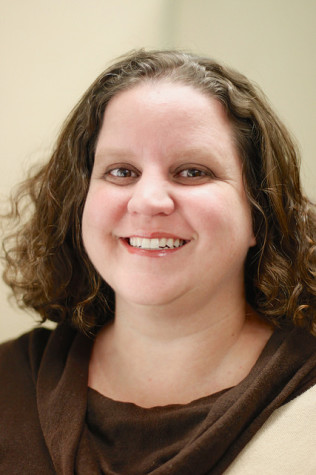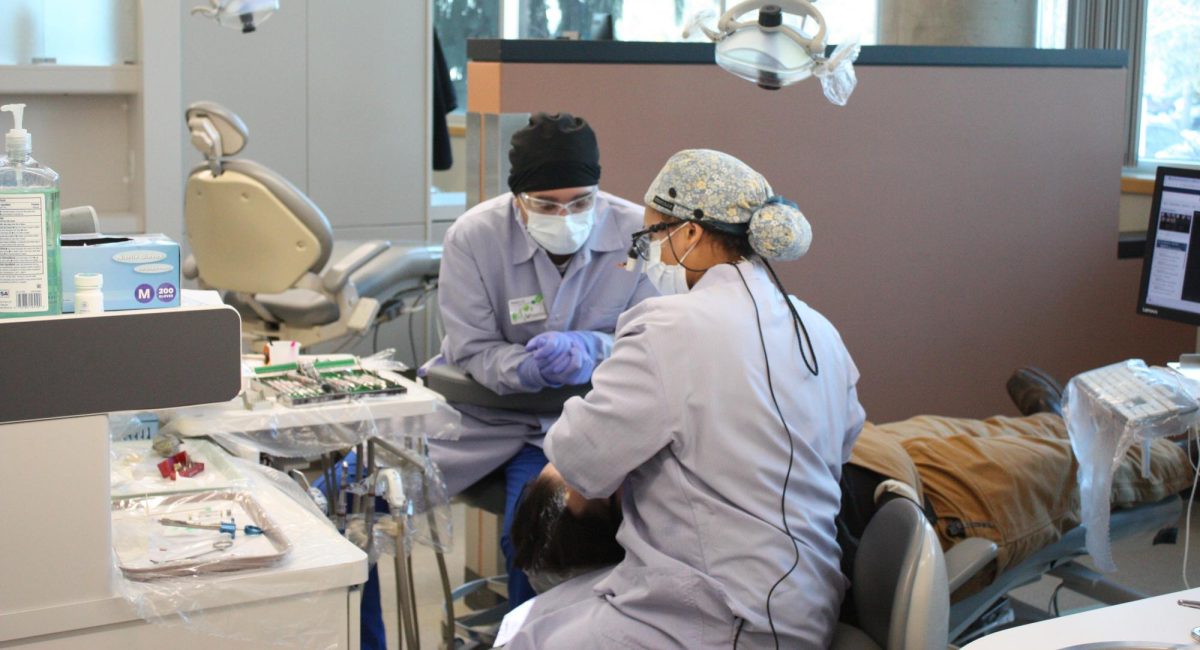Cheney Food Bank director prepares to retire after 14 years of being interim director
June 6, 2013
John Matthews is looking for a permanent replacement after serving as the Cheney Food Bank’s interim director since 1999.

Photo by Sam Sargeant
John Matthews poses with a check donated to the Cheney food bank.
“I’ve been temporary for 14 years,” Matthews said.
The Cheney Food Bank is part of a community organization called Cheney Community Services, a 501(c)3 tax-exempt organization that also includes a clothing exchange next door to the food bank, according to Matthews.
“This food bank, in some form, has existed since 1958,” said Matthews. He said that he got involved around 1989 when a friend told him that Cheney Community Services needed a treasurer.
Matthews had earned a mathematics degree from the University of Nebraska after a stint in the Air Force, so “I got in there,” he said. “The food bank was one of our [departments], so I was paying the bills, and I’d come down to the food bank and reimburse people for expenditures. Then I kind of worked my way into volunteering and became a weekly volunteer in addition to my other position.”
Matthews said that during the following years, the food bank went through about eight different directors. When the last one left, he stepped in to fill the void on a temporary basis. No one else was found to do the job, so he kept doing it.
According to a recent Eastern 24/7 article, last year’s EWU food drive, which was started in 2008 by Nadine Arévalo, netted a total of $18,241.22 and about three tons of food. The Cheney Food Bank received almost $7,000 in cash plus the 3 tons of food.
Matthews said that about 8,000 pounds of food moves through the food bank each month. The food bank spends about $24,000 a year, and roughly 96 percent of that is for groceries. The rest is for city-required liability insurance.
The food bank provides fresh fruits and vegetables, canned foods, dairy products and generic daily needs such as toilet paper, toothbrushes and laundry detergent, Matthews said.
Food and supplies come to the Cheney Food Bank from the federal government, from Second Harvest and from local donations of food and cash, according to Matthews.
“Second Harvest is a central warehouse that distributes food donations it secures from the food industry and community,” according to its own media kit. Matthews says it provides 30 to 40 percent of the Cheney Food Bank’s total supplies.
“Really, it’s one of the best neighborhood food banks in the county,” said Second Harvest President and CEO Jason Clark. “Everybody has to deal with limited resources and make the best of it, but I think John [Matthews] in particular has really taken a meager facility and turned it into a place that is really well run for folks who are having a hard time. It’s an impressive accomplishment, and the folks in Cheney can be proud of that.”
Right now, about 380 families are utilizing the food bank, down from 400 last year. “We went up 20 or 25 percent over the course of the recession, though,” Matthews said.
He pointed out a shelf of decorative birthday bags for giving to children on their birthdays and said that 100 of them had been made by the United Church of Christ this year. One recent year, according to Matthews, the bags were prepared by an EWU sorority.
“The city is just wonderful to us,” said Matthews. “They provide us with space, they provide the electricity, all we have to do is insure. We don’t pay any garbage fees or plumbing. They also do this for the clothing exchange next door, which is part of [Cheney Community Services].”
EWU’s food drive for this year launched on May 20 with a canned food drive. Volunteers will continue gathering food and donations on campus until Aug. 15.








